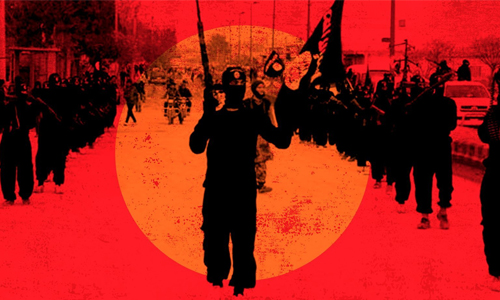The root cause of cross-border terrorism, continuing in the Indian State of Jammu and Kashmir lies in the partition of India in August 1947 as a result of which Pakistan came into existence. Competition, rivalry and enmity between India and Pakistan witnessed four declared wars between the two – the last one in 1999 at Kargil. Although the anti –India feeling and partial activity, from the beginning, has been integral part of Jammu Kashmir’s daily life, it took an alarming proportion at the close of eighties and early nineties due to engagement of a large number of terrorists who where earlier fighting in Afghanistan against the Soviet forces. Dozens of militant groups and thousands of terrorists began to take part in terror activities in Jammu and Kashmir. However, the main cause of it is the deprivation of political power due to which the community believes that its dignity and identity are threatened. In general a secessionist-terrorist movement often seek outlets if the political system does not have adequate provision for its expression. This is what actually happened in Jammu and Kashmir after 1987. All institutional channels of protest and dissent which are essential to generating both democratic values among the citizenry and their allegiance to the established framework of authority were effectively blocked.
Religious bases of terrorism
Terrorism, it is said, has become endemic to modern society. It continues to be generated by recurrent social crises, arising from the increasing marginalisation of some sections of society caused by the indescriminate spread of capitalism and the free market economy, through the much vaunted process of globalisation. At its root the terrorist movement is born out of frustration and despair. Despair caused by social marginalisation, economic decline and political defeat. Someone once said that ‘young hope betrayed, transforms itself into bombs’. Perceived injustice if allowed to continue unresolved, would transform into despair and then violence. According to Leon Trotsky the two emotions central to terrorism, are despair and vengeance. The causes of these issues and the form they take, whether it be terrorism or otherwise, must be studied and understood in a scientific and objective manner.
The terrorism in Jammu and Kashmir has a strong religious base too. In Islam there is a concept of Jihad. According to Quran this concept is a total strategy which demands the preparation and application of total manpower and military instrument /elements for accomplishment of the purpose. It went on to say further that ‘The holy Quran lays the highest emphasis on the preparation of war. The test of utmost preparation lies in our capability to instill terror into the hearts of the enemies’. The merging of the concept of jihad, war and terrorism has also been pursued in the trans-national terrorism which we witness in Jammu and Kashmir. Incidentally, a combination of jihad terrorism war has also cast a dark shadow on terror-related incidents of Afghanistan.
Schools of terrorism
There can be no doubt that India is the victim of sustained low-level aggression by secessionist forces encouraged and abetted by Pakistan. The present thinking on terrorism can be divided into two schools of thought. One school of thought places the terrorist beyond the pale of civilized society and considers him anathema to civilization and stigmatises him as a plain murderer who needs to be eliminated. But the second school of thought encourages an in-depth study of, and a systematic approach to understand and eradicate, the reasons that bring about such upheavals. The rational political, social and economic aspirations of peoples which when frustrated continuously give rise to full blown terrorism of the modern day, must be sifted out of the process of terroristic actions and looked at separately. Those political aspirations must be addressed honestly and seriously. The solutions that are employed must be made effective–legally and constitutionally, politically, economically and socially. The overall gained impression from the cross-border terrorism is that it relates to the second school of thought. Peace is more than the simple absence of war. It entails active engagement in the battle for identifying and rectifying the root causes of conflict.
New factors at work
The problem of cross-border terrorism took an alarming shape during 1988-89 for which solid ground had been prepared by the parties concerned. First, on the part of New Delhi it was a time to face realities on the ground and examine carefully the causes for the sense of alienation that the Kashmiris feel. The government is well advised to go into the history of the Kashmir issue in order to understand and appreciate how and when things went wrong and how the impass of this particular type came about. It is an open fact that the Government of India has, from the beginning, been ignoring the political, social, economical as well as cultural needs of the people of Jammu and Kashmir. The successive governments of the National Conference well alternated by the direct rule of New Delhi proved a disaster in real sense of the term. Farooq Abdullah’s behaviour during his curtailed first term in 1983-84, has been described as that of ‘a little boy with a toy’, and during the second as ‘a virtual abdication of governance.’ He acquired the sobriquet “disco chief minister” because he was frequently sighted in discotheques in India cities, and he spent much of the rest of his time playing golf or vocationing abroad. His colleagues in government earned a reputation for corrupt practices.
Home » Opinion » Larger Causes Surrounding The TerrorismIn The Region
Larger Causes Surrounding The TerrorismIn The Region
| Dr. Rajkumar Singh

